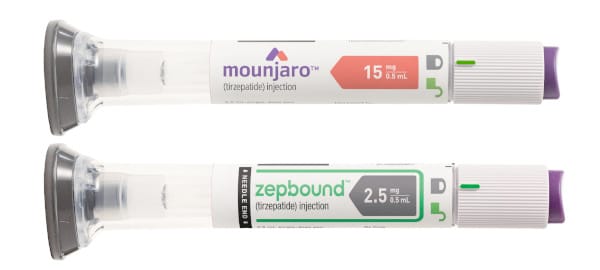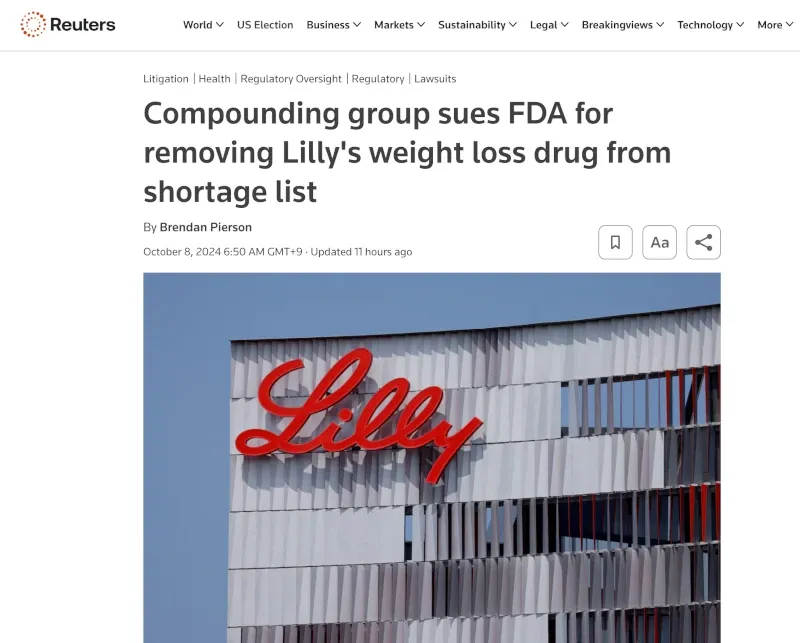Compounders sue FDA over Tirzepatide shortage changes
Compounders sue FDA for removing Eli Lilly's weight loss drug from the shortage list. Does the case have legs?

Recently the ending of the Tirzepatide shortage (which seems like good news!) exposed companies with business models selling compounded formulations of drugs produced by Eli Lilly (Mounjaro, Zepbound – both of which are based around Tirzepatide):

We're not legal experts, but these compounders probably don't have much of a case. While it might not be helping in this particular case, the patent system in the United States arguably does a lot for innovation in the pharmaceutical space.
It is the United States however, so businesses have the privilege of taking their disagreement to court – suing the state itself.

What other exceptions are there?
The way compounders were able to legally create what were essentially copies of Tirzepatide was due to an exception in the existing law – when drugs are in shortage, smaller manufacturers can step in to add supply.
The FDA has a useful FAQ about drug shortages here:

The important bits can be summed up from their previous statement:
Section 503A of the FD&C Act includes restrictions on compounding drugs that are essentially copies of a commercially available drug. When a drug shortage is resolved, FDA generally considers the drug to be commercially available. Certain amounts are permissible under the law as long as the compounding is not done “regularly or in inordinate amounts.”
Section 503B of the FD&C Act restricts outsourcing facilities from making compounded drugs that are essentially a copy of one or more FDA-approved drugs. Among other things, this means the compounded drug may not be identical or nearly identical to an FDA-approved drug unless the approved drug is on FDA’s drug shortage list.
While up until now compounders used the 503A exception, they're now hoping (outside of succeeding in legal action) to succeed by proving that their new drugs are substantially different from the drugs covered under patent.
Again, we're not legal experts but this seems unlikely to succeed – most people do not buy c0mpounded GLP1 for vitamin B12 (a common addition to some compounded formulas).
What does this mean for supply
In the short term – supply of Tirzepatide will likely rise as production ramps up, but that supply will likely only be accessible at higher prices. Good news for Eli Lilly, but not so great for the average person who wants access to GLP1 Receptor Agonists for weight loss or type 2 diabetes treatment.
This change may happen to other GLP1 RA formulations, but until then, the other drugs can still be compounded.
What remains to be seen is how long companies like HIMS which offer compounded semaglutide officially will be able to offer such services.
Business models like Equinox's (that plan around the GLP1 medication, rather than offering it), should likely be fine.
It's unclear whether WeightWatchers' program relied on compounded GLP1, but it's likely that they might be able to secure a deal to procure dosage from Eli Lilly and/or others.





